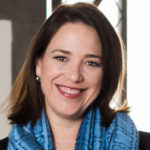 I hosted a conversation last Thursday at my church in which Brené Brown and DeRay McKesson engaged in a public dialog about race and vulnerability. While the conversation they had that night is no longer available to view, the idea to host such a conversation came from a Twitter exchange they had about the same topics a few months before.
I hosted a conversation last Thursday at my church in which Brené Brown and DeRay McKesson engaged in a public dialog about race and vulnerability. While the conversation they had that night is no longer available to view, the idea to host such a conversation came from a Twitter exchange they had about the same topics a few months before.
My job as host last Thursday was not to contribute any deep wisdom to the conversation; if you saw the event you already know that their exchange was so deep and intense that there was very little possibility I would succeed at even interrupting them. Rather, I was there to prod the conversation along if needed, to offer questions from the viewing audience, and to listen intently …
… which was what I was doing when Brown responded to a comment by McKesson: “There’s not enough preaching in the world that can make people change their hearts.”
I was startled when I heard it. I am a preacher, after all.
“There’s not enough preaching in the world that can make people change their hearts.”
This is a jarring comment for a preacher to hear, especially when we’re engaging issues that are so deep and raw that nobody is sure their best efforts at anything — protesting, policy change or even preaching — can make even a dent in the scar that America’s original sin has left on our individual and corporate psyches.
But here’s the strange thing: I’m a preacher … and I agree with Brené.
There is not enough preaching in the world that can make people change their hearts, and preachers who are under the illusion that theirs might have a bigger problem on their hands. We live in a country where rhetoric of any kind is not doing the work of changing peoples’ hearts, but instead serving to more deeply entrench us in opinions we already hold and to polarize us in positions even further away from each other than we imagined.
We’re going to have to do more, to move past talking (even preaching!) and into the messy and painful work of deep conversation held together by real relationship. In fact, it’s increasingly my conviction that this may be the heart of the faith community’s work in this moment: building authentic relationships upon which these difficult conversations can rest.
In our world we’re brokering conversations between pastors and online gun dealers; Harlem rappers and Palm Beach retirees; and, last Thursday, Black Lives Matter activists and university professors. I think the work ahead of us involves finding more boundaries that need crossing and crossing them with a boldness that is undergirded with deep faith. After all, what else would give us the courage to cross those lines and engage the people we wouldn’t engage otherwise?
A few weeks ago I had the gift of visiting Israel and Palestine as part of a group of women clergy from the United States. While there we met with many people — mostly women — working to broker peace in a region so torn and divided. One of the things I found so striking about my time in the area was this: Israelis and Palestinians do not interact with each other in many of the ways we would expect. They do not travel together, live together, eat together, worship together, go to school together. And when you don’t do the work of life together, it’s so very easy to demonize each other, to be sure that the other is the antithesis of everything good.
I’m more and more convinced that this approach to life won’t work if we want to live into a vital future together. We’re living in a time when courageous conversations are not optional; we have to do the hard work to cross the boundaries that divide us or we won’t ever be able to find our way back to each other.
What are the boundaries in your world that seem impossible to cross? Let’s cross them and show the world that there is nothing that can’t be overcome if we’re willing to try.
Tell me on social media about the boundaries you’re crossing with the hashtag #relationshipschangeus.
